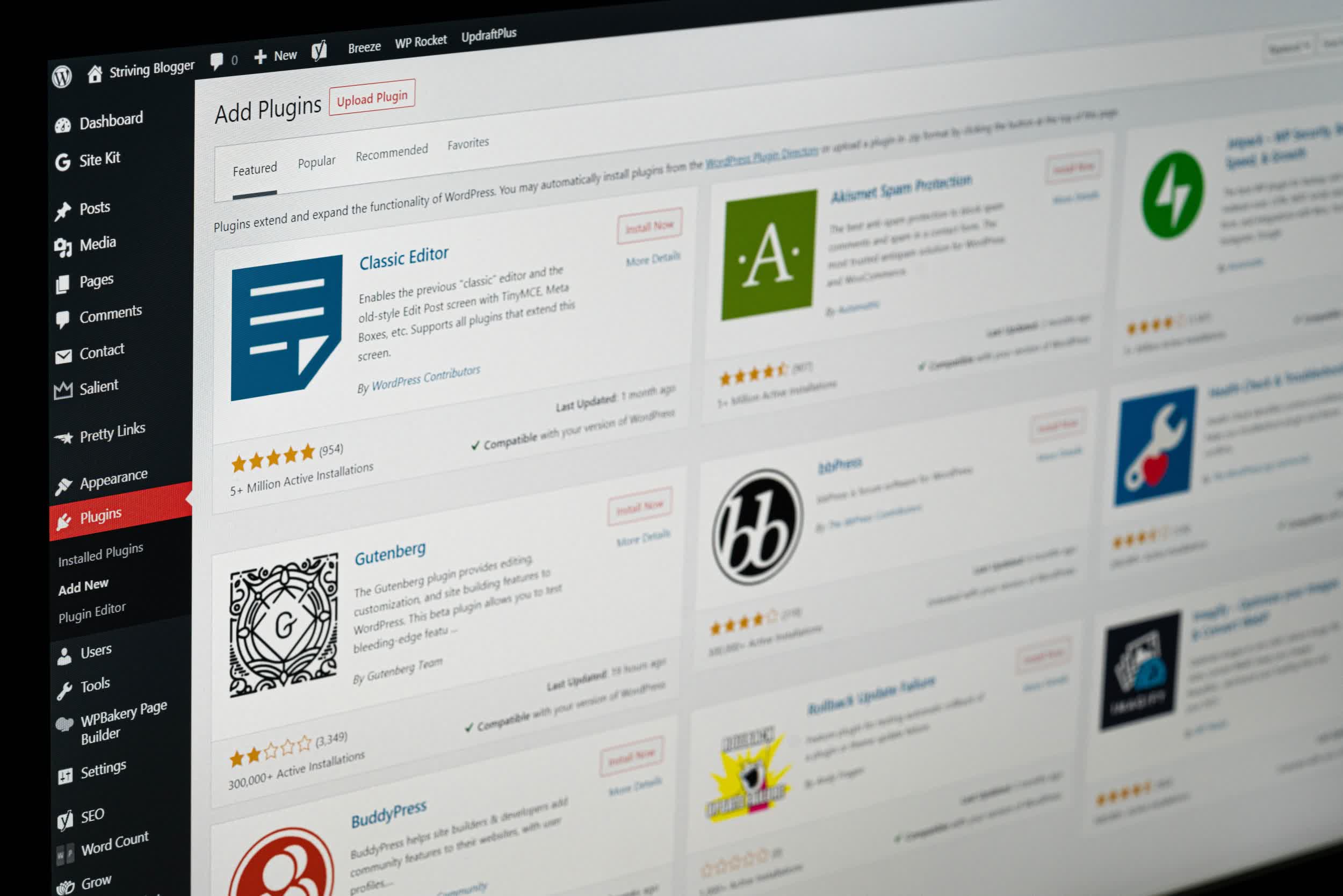A hot potato: The ongoing drama over WordPress and copyright is heating up. Automattic wants WP Engine to pay for using WordPress open-source technology. However, the hosting service demands that the for-profit company retract its accusations. Meanwhile, WordPress users and customers are stuck in the middle, suffering the consequences.
Automattic CEO and the creator of popular CMS WordPress Matt Mullenweg didn’t mince words when he called WP Engine a “cancer” to the WordPress community. The company offers managed hosting services for WP websites. However, Mullenweg says it is profiting off one of the most successful content management systems (CMS) on the market while offering very little in return.
WP Engine already sent Automattic a cease-and-desist letter asking Mullenweg to stop depicting the company as a cancer and defended its right to use the “WordPress” trademark under the fair use doctrine. The domain host also revealed that Automattic asked for a “significant percentage” of its ongoing revenues to keep using the WordPress brand.
Now, Automattic is playing tit-for-tat by sending WP Engine a cease-and-desist of its own. The San Francisco-based company formally asked its competitor to stop infringing on its registered trademarks, which include WordPress and WooCommerce brands. The letter states that Automattic retains exclusive commercial rights from the WordPress Foundation, and WP Engine needs to secure a proper (paid) license to use them.

WordPress.com is a freemium web platform offering hosting services for WP-based blogs and websites, while WordPress.org is the “core” open-source project supported by the non-profit organization WordPress Foundation. Automattic and WP Engine are essentially fighting over which company can exploit the WP.org community the most, and both feel entitled to use the CMS project however they please.
The fight isn’t just a legal matter. It has become personal. Mullenweg escalated the clash with a harsh blog post, declaring that WP Engine will no longer have access to content available on WordPress.org. The platform hosts WordPress open-source plugins, themes, and other WP-related technologies and is a crucial resource for users looking for updates, guides, and information.
“WP Engine needs a trademark license, they don’t have one. Why should WordPress.org provide these services to WP Engine for free, given their attacks on us?” Mullenweg complained.
If the company wants to control the WordPress experience, it must arrange an independent infrastructure and login system, plugin directory, bug tracker, conferences, and everything else. WP Engine servers have been barred from WordPress.org servers, so WP Engine customers no longer have access to the core platform of the open-source CMS.
“WP Engine is free to offer their hacked up, bastardized simulacra of WordPress’s GPL code to their customers, and they can experience WordPress as WP Engine envisions it,” Mullenweg concluded.





